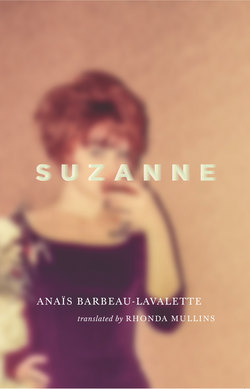Читать книгу Suzanne - Anais Barbeau-Lavalette - Страница 43
На сайте Литреса книга снята с продажи.
ОглавлениеThe Salle du Gesù is full. It surprises you. All these young people spending an evening listening to others speak.
The audience is facing an empty, plainly lit stage, onto which the speakers are already filing.
Each speaker will make a speech, arguing an issue of their choice for ten minutes. What counts is style and rigour.
A tall young man is already standing on the stage. He is wearing a black jacket that makes him look like he has broad shoulders, which he squares before the crowd, his torso on display.
His thighs also seem slightly spread, giving the fleeting impression of a body in freefall. The audience is instinctively attentive, trying to catch him in mid-flight.
The words flow from his mouth, slow and expansive, reaching audience members like smooth, viscous lava from a volcano.
There is no escape.
At the end of his speech, there is a moment of silence before the applause, the bodies stunned by the impact of the encounter.
Leaning against a wall, you are moved. You can’t sum up what was said. It was something about systems of thought and worlds to invent.
But the man, with his controlled freefall, has captivated you.
It’s your turn. You walk the distance that separates you from the stage, and already you feel like you are foundering a little. You know your speech and you know you can deliver it.
But suddenly the crowd seems alien to you. You don’t know if they like you. You haven’t had time to make sure.
You climb the three steps and find yourself higher than all of them.
At the back of the room, you see the man who, a few minutes before, controlled his fall so well. He is studying you. Yet his strength has an aura with a clear crack. Which you feed from.
And you dive in. You are talking about the end of the war. Of the freedom it has brought women, who are finally out of the house. You know that this sounds shocking: a woman’s place is in the home.
The words are formed round in your chest and grow moist in your mouth. You magnanimously send them out into the room; you offer them up. Here, come have a taste.
People are listening to you, at first tentatively.
You spontaneously stop for a moment. Something is missing. You pull out your red lipstick and excuse yourself as you paint your mouth crimson. You get a few laughs, just a few. You accept them. The lipstick is the elegance your words were missing. You change from a girl to a woman, and you pick up where you left off. The workers at your plant become more elegant, their gestures become more graceful, almost mesmerizing. A page of history has just turned. They can be women and factory workers.
Everything about you speaks of a new era. You stand tall, and despite your diaphanous skin, it seems as though you have just invented the world. You talk about possibility, and it is moving that something huge and invisible is growing from such a slight presence.
You finish. You get a standing ovation.
You win the public speaking competition.
The young man of the cleverly controlled fall comes to congratulate you. Even up close, he looks like he is falling. He introduces himself. His name is Claude Gauvreau.
He invites you to spend the evening at his friends’ place. Delighted, you accept.
